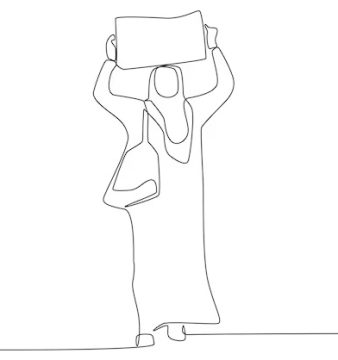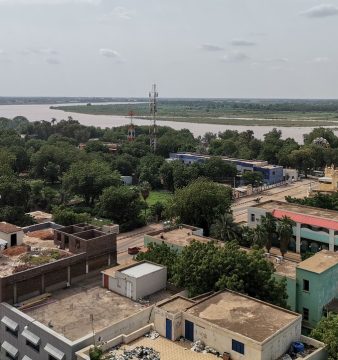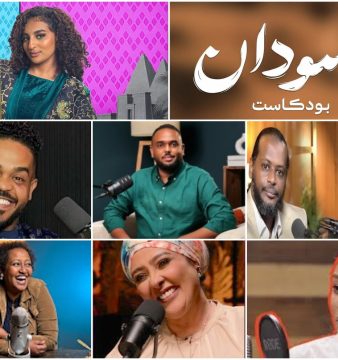Counterrevolutionaries: Foreign Meddling in the Sudanese Revolution
Between 24 and 27 May 2019, General Abdel Fattah Al Burhan, the current head of the Transitional Military Council (TMC) and Deputy Head General Mohamed Hamdan (Hemedti) made a series of visits to neighbouring Egypt, the Kingdom of Saudi Arabia (KSA) and the United Arab Emirates (UAE), which ensued a dramatic modification of tone.
Dialogue and negotiations initiated on 11 April with the Alliance of Freedom and Change and consensus made on 15 May came to a halt as the TMC no longer recognised the opposition alliance as representatives of the revolution and were instead, demonised and deemed as a threat followed by numerous attempts to disperse the sit-in — an impetus for an already colossal amount of people to grow even larger.
On 3 June, Rapid Support Forces (RSF) and other paramilitary forces raided the monthslong mass sit-in in Al Qeyada, which surrounded the headquarters of the Sudanese Armed Forces (SAF). Strengthened by military equipment from the KSA and the UAE, paramilitary forces fired live ammunition at peaceful protesters, leaving at least 100 people dead and more than 300 injured. In addition, civilians were terrorised, beaten and sexually abused. Houses were looted and hospitals were raided. People were thrown into the Nile River both dead and alive. Moreover, Internet Service Providers (ISP) cut off internet access in addition to a complete media blackout.
Evidently, rulers of autocratic and dictatorial Arab regimes are willing to go great lengths to micromanage and prevent any democratic transitions within the region. Electing representatives, rule of law, freedom of expression and so forth imposes an existential threat to their countries and interests and so what better way to protect their royal seat than write bloodstained cheques concealed as “aid”.
The prime examples of the counterrevolutionary element in Saudi’s policy can be perceptible during the Bahraini uprising of 2011 and the Egyptian revolution of 2011. The potential overthrow of a neighbouring monarchical Gulf threatened the Saudi’s monarchy domestic legitimacy also, the fear of Shitte majority influencing the country’s political system leading to a Saudi-Emirati intervention in Bahrain to suppress the anti-government uprising in the country and protect royal palaces and governmental facilities.
During the Egyptian revolution, the Saudi government reaffirmed their support for former Egyptian president Hosni Mubarak through political and financial support — concerned that the overthrow of the authoritarian regime would drive people in other Arab countries specifically in the monarchical Gulf Cooperation Council (GCC) to rise up against their regimes as well. In addition, the Egyptian regime serves as a counterbalance to contain Iran’s balance in the Middle East.
China’s and Russia’s support for the TMC underlines deep economic and political interests, which were blanketed under the revolution being an “internal matter” and that the council should await responses from the African Union (AU) when Britain and Germany proposed a bid blocked by both China and Russia to condemn the killing of civilians and issue an urgent call from world powers for an immediate halt to the violence at the Security Council meeting.
The AU, currently chaired by Egyptian President Abdel Fattah El Sisi, set a 15-day deadline for the military to hand over power when Al Bashir fell. After El Sisi intervened, as a result of Saudi and Emirati pressure, the deadline was extended to three months – a move that aimed to ease international pressure on the TMC. However, on 6 June, the AU suspended Sudan after RSF’s deadly crackdown on protesters for peacefully demanding for an interim civilian government.
The outcome: Egypt and the Saudi-UAE alliance call for returning to the negotiating table by both parties whilst simultaneously ensuring democracy ceases to exist in the region in other words, wanting protestors to cede to the TMC and China and Russia continue to protect their interests regardless of international human rights law.
The Sudanese revolution stands fighting four governments with calls for the international community only met with boilerplate condemnations of violence whilst the TMC is committed to listen, serve and protect neighbouring dictatorial regimes rather than its own people.
 Suha Khalid is a soon-to-be 18-year-old driven by EM Cioran’s hallmark of thought – “Thinking against oneself” – through continual introspection and inquiry into what one has been taught. Having multiple interests, namely politics, philosophy, technology, film and art, she is in a constant state of exploration. Khalid discovered her passion for politics and became acquainted with diplomacy and international issues at the age of 12 through her involvement in Model United Nations (MUN) attending numerous international conferences. Currently, on a gap-year, she spends the majority of her time reading, writing and discovering new interests.
Suha Khalid is a soon-to-be 18-year-old driven by EM Cioran’s hallmark of thought – “Thinking against oneself” – through continual introspection and inquiry into what one has been taught. Having multiple interests, namely politics, philosophy, technology, film and art, she is in a constant state of exploration. Khalid discovered her passion for politics and became acquainted with diplomacy and international issues at the age of 12 through her involvement in Model United Nations (MUN) attending numerous international conferences. Currently, on a gap-year, she spends the majority of her time reading, writing and discovering new interests.





